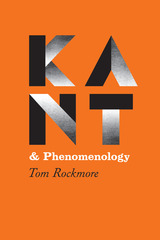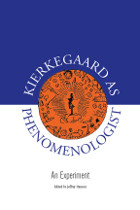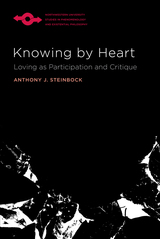4 start with K start with K

Phenomenology, together with Marxism, pragmatism, and analytic philosophy, dominated philosophy in the twentieth century—and Edmund Husserl is usually thought to have been the first to develop the concept. His views influenced a variety of important later thinkers, such as Heidegger and Merleau-Ponty, who eventually turned phenomenology away from questions of knowledge. But here Tom Rockmore argues for a return to phenomenology’s origins in epistemology, and he does so by locating its roots in the work of Immanuel Kant.
Kant and Phenomenology traces the formulation of Kant’s phenomenological approach back to the second edition of Kant’s Critique of Pure Reason. In response to various criticisms of the first edition, Kant more forcefully put forth a constructivist theory of knowledge. This shift in Kant’s thinking challenged the representational approach to epistemology, and it is this turn, Rockmore contends, that makes Kant the first great phenomenologist. He then follows this phenomenological line through the work of Kant’s idealist successors, Fichte and Hegel. Steeped in the sources and literature it examines, Kant and Phenomenology persuasively reshapes our conception of both of its main subjects.

From Kant to Kierkegaard, from Hegel to Heidegger, continental philosophers have indelibly shaped the trajectory of Western thought since the eighteenth century. Although much has been written about these monumental thinkers, students and scholars lack a definitive guide to the entire scope of the continental tradition. The most comprehensive reference work to date, this eight-volume History of Continental Philosophy will both encapsulate the subject and reorient our understanding of it. Beginning with an overview of Kant’s philosophy and its initial reception, the History traces the evolution of continental philosophy through major figures as well as movements such as existentialism, phenomenology, hermeneutics, and poststructuralism. The final volume outlines the current state of the field, bringing the work of both historical and modern thinkers to bear on such contemporary topics as feminism, globalization, and the environment. Throughout, the volumes examine important philosophical figures and developments in their historical, political, and cultural contexts.
The first reference of its kind, A History of Continental Philosophy has been written and edited by internationally recognized experts with a commitment to explaining complex thinkers, texts, and movements in rigorous yet jargon-free essays suitable for both undergraduates and seasoned specialists. These volumes also elucidate ongoing debates about the nature of continental and analytic philosophy, surveying the distinctive, sometimes overlapping characteristics and approaches of each tradition. Featuring helpful overviews of major topics and plotting road maps to their underlying contexts, A History of Continental Philosophy is destined to be the resource of first and last resort for students and scholars alike.

In Kierkegaard as Phenomenologist: An Experiment, Jeffrey Hanson embarks on a project to locate Kierkegaard within the current phenomenological discussion. This work is an experiment inasmuch as the plausibility of the undertaking itself will be determined only by the outcome. Some of the contributors clearly regard it as possible to read Kierkegaard as a phenomenologist. Others plainly do not and will contest the very hypothesis that forms the basis of this experiment.
As with any experiment, the larger discussion will determine its success, but Kierkegaard as Phenomenologist lays the groundwork for two exciting possibilities: first, that Kierkegaard scholarship will be renewed, and second, that the meaning of phenomenology itself will be reconsidered.

Knowing by Heart describes the movement of loving as a participation that bears on all beings. Eschewing the dichotomy of rationalism and sensibility that has dominated discussions of love and emotion, Steinbock understands the heart as a vast schema ranging from the deepest loving to affects and felt conditions. The book brings into focus the importance of a full‑bodied relational account of a normative critique based in emotion. From a phenomenological description of diverse feelings to the normativity of loving as the discernment of the heart, this work evaluates hating’s relation to loving. At the basis of all this is a phenomenological and philosophical anthropology in response to the basic question: In reality, who and what are we?
READERS
Browse our collection.
PUBLISHERS
See BiblioVault's publisher services.
STUDENT SERVICES
Files for college accessibility offices.
UChicago Accessibility Resources
home | accessibility | search | about | contact us
BiblioVault ® 2001 - 2024
The University of Chicago Press









